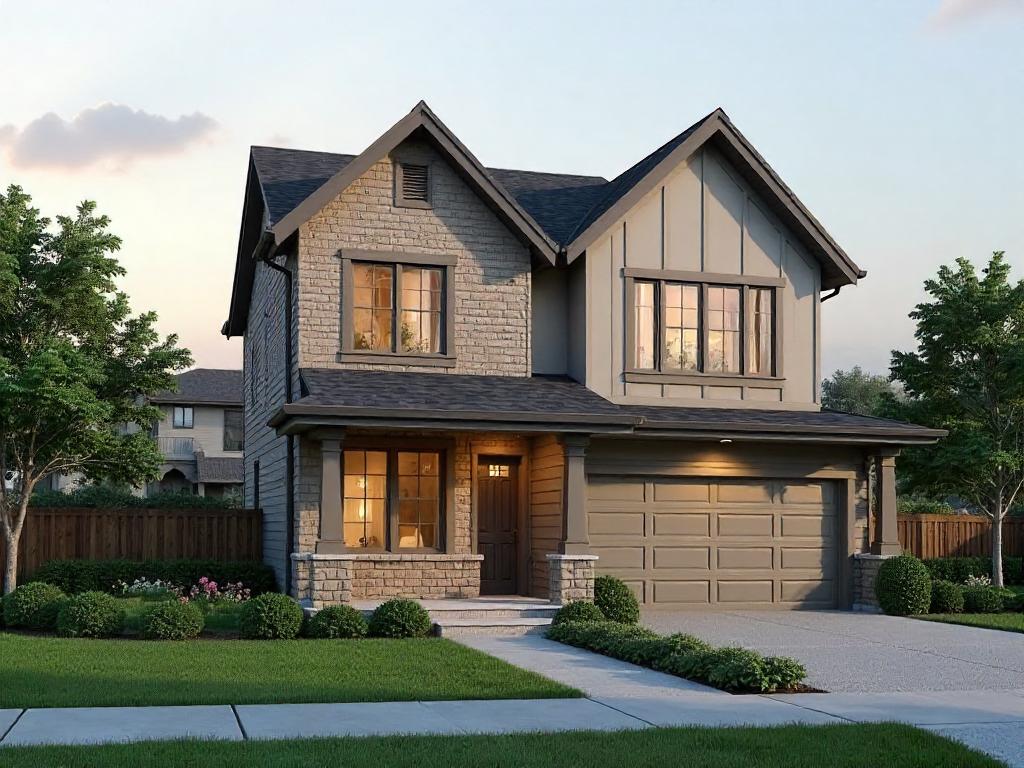As we hit the big 6-0, life’s choices can feel like a buffet—some delectable delights and a few questionable casseroles! Home ownership versus renting? It’s a bit like choosing between a cozy old sweater and a swanky new jacket. We think of owning our little slice of heaven, complete with creaky floors and memories, but then there’s the lure of renting, which promises freedom like a cool breeze on a hot summer’s day. In this article, we’ll spill the tea on the pros and cons of both paths after 60, whether to snag that condo you’ve been eyeing, and whether cash or a mortgage suits your fancy! So grab a cup of coffee as we explore the ins and outs that come with these transitions!
Key Takeaways
- Home ownership can offer stability, but be ready for those surprise repairs!
- Renting provides flexibility, perfect for those who want to avoid home maintenance.
- Condos can be a great option, combining community living with less upkeep.
- Cash purchases save interest but can deplete savings—careful balance required!
- Consider your lifestyle and long-term plans before making that big decision.
Now we are going to talk about the bright and not-so-bright sides of buying a home after hitting the big 6-0. You might think that at this age, you’re ready for a cozy retirement on the beach. But let’s face it, sometimes handing over those keys and settling in isn’t quite as straightforward as we imagine.
Advantages and Disadvantages of Home Ownership After 60
Advantages
Building Equity
Buying a home isn’t just about a roof over your head; it’s like planting your savings in the ground. Imagine this: you snag a charming place in a neighborhood buzzing with activity. As property values rise, so does your *equity*.
Years ago, a friend bought a quaint cottage and, believe it or not, now it’s worth twice what he paid! Just think: whether you’re sprucing it up to flip it or nestling in for life, that newfound value can feel like discovering a hidden stash of cash.
Tax Benefits
Who doesn’t appreciate the thrill of tax breaks? Alongside the joys of homeownership comes some fantastic *deductions*:
- Mortgage Interest Deduction: If your mortgage is below $750,000, you can write off that interest. Yes, please!
- Property Tax Deduction: Homeowners can deduct up to $10,000 in taxes. Perfect for alleviating that post-ownership sticker shock!
- Points Deduction: If you pay points to lower your mortgage rate, guess what? Those are tax-deductible too!
As always, grab your calculator and check in with your tax professional for the latest scoop. Tax code changes faster than a speeding bullet!
Stability
Renting can feel like living hand-to-mouth—especially when the landlord ups the rent every year. Owning your home gives you *stability*. With a fixed-rate mortgage, you can set your monthly budget in stone, allowing you to plan the zillion vacations on your bucket list without worrying about temporary accommodations.
Freedom to Customize
Imagine transforming your kitchen into a gourmet paradise! Homeownership allows us to make changes that fit our lifestyles and physical needs. Think about it: grabbing a step-free entrance or safety features like better lighting can make a world of difference as we grow older.
Disadvantages
Maintenance Nightmares
Oh, the joys of home maintenance! Just when you think everything’s peachy, your roof decides to shed water like a dog shedding fur in spring. Upkeep can be a hefty burden, emotionally and financially.
Here are some common home maintenance costs we might face:
- HVAC care: $110 to $200 yearly; replace for $3,000 to $6,000.
- Water Heater: maintenance around $375; replace it for $1,400. Ouch!
- Gutters: $150 annually, but replacing them could cost up to $2,500. Yikes!
Increased Monthly Costs
Homeownership isn’t a “set it and forget it” deal. Property taxes, insurance, and maintenance can pile on. Renters can sometimes sleep peacefully knowing their costs don’t skyrocket unless their landlord has found a new way to stir the pot.
Less Flexibility
If life suddenly takes a left turn and you need to move, real estate isn’t as breezy as getting out of a rental agreement. Selling your home can feel like herding cats—chaotic and slow. You might need to find tenants or navigate the selling process, which can feel like being stuck in traffic!
Investment Recovery Time
If the market takes a dip, it might take years to regain what you invested. So, if life forces you to sell before your home’s value appreciates, you could be left wishing you’d just stayed a nominal tenant.
In the end, while buying a home after 60 comes with exciting possibilities and a few bumps in the road, it can ultimately lead to a more fulfilling retirement journey. Just remember to weigh those pros and cons like a scale of life decisions involving pie and cake—because who wouldn’t want some sweet options?
Next, we are going to chat about the advantages and disadvantages of renting a home after hitting the milestone of 60. This is a big step for many, and like our favorite pair of comfy slippers, it comes with both perks and pitfalls. So, let’s break it down!
Advantages and Disadvantages of Renting a Home Post-60
Advantages
Flexibility Galore
Have you ever experienced one of those “uh-oh” moments in life? Like when that dreaded call comes from your family that you might need to relocate? Renting can feel like a safety net in those situations.
With a lease, things can change on a dime. No need to slap a “For Sale” sign on the lawn and wait for prospective buyers to stroll by, right?
If you’re thinking of getting out of your lease early, be sure to comb through those tiny details. Some landlords might charge you for the remaining rent—like that surprise bill you find buried in your mailbox after a long vacation.
Going with a month-to-month lease can be a lifesaver, offering you more freedom than a kid in a candy store. A mere 30-day notice? Yes, please!
No Repair Bills
Let’s be honest, who wants to morph into a DIY TikTok star at this stage in life? If something goes haywire—a leaky faucet, that pesky heating system—you wouldn’t want to panic like a cat in a room full of rockers.
Renting means you can pick up the phone and not worry about breaking the bank. No need to channel your inner handyman or become best friends with the local hardware store.
Cost-Effective Living
For budget-savvy seniors looking to stretch those retirement funds, renting can be a great fit. Some landlords sweeten the deal by incorporating utility charges in the rent. That’s like finding a coupon in your pocket you forgot about!
And let’s not forget about insurance. Renter’s insurance is often cheaper than homeowner’s, letting you keep your hard-earned cash where it belongs—in your pocket.
Financial Flexibility
Instead of tying your savings up in a house, renting can free up cash for the things that matter—like that long-anticipated trip or a spontaneous adventure. Imagine sipping coffee by the Eiffel Tower without worrying about the bills piling up back home. Sounds perfect, doesn’t it?
Disadvantages
Rent Hikes
Landlord’s Power Play
One moment you’re snug as a bug, and then—surprise! Your landlord decides to sell! It’s like finding out your favorite restaurant closed when you’re ready to chow down.
If you’re in a month-to-month arrangement, be prepared for a swift move that could have you boxed up and out the door in 30 days or less.
Limited Personalization
Love the idea of a cozy reading nook or updated accessibility features? Don’t hold your breath. Renting can come with restrictions tougher than a two-hour meeting that could have been an email.
Even if you ask permission to spruce up your space, it feels like begging for a cookie before dinner.
No Equity Growth
- Flexibility can be a lifesaver in times of change.
- No maintenance worries means peace of mind.
- Renting can save you money in various ways.
- Financial freedom to spend on experiences.
- Regular rent increases can strain budgets.
- Landlords can sell the property anytime.
- Less freedom to customize your space.
- No equity means you miss out on future gains.
Now we are going to talk about the pros and cons of condo living.
Is Purchasing a Condo Right for You?

Condos, or as some folks call them, their little slice of communal paradise, can be fabulous for those looking to simplify life.
We all know someone who’s done the “big move” from a spacious house to a snug condo.
Suddenly, they’re sipping coffee on their balcony with ocean views instead of mowing the lawn—that sounds enticing, right?
Imagine trading yard work for a quick swim in the pool or a game of shuffleboard with neighbors. Many condos offer amenities that remind us of a resort stay.
One friend swears by her community’s monthly taco night—it’s like a fiesta without the sombreros!
These places are built for a social scene, which can be a breath of fresh air for some.
However, condo life isn’t everyone’s cup of tea.
If someone loves to garden or can’t stand the idea of sharing walls, they might prefer their own little castle instead.
For instance, you can’t quite plant your rose garden if you’re living on the third floor.
One neighbor of ours, a devoted gardener, tried to sneak in some herbs on the balcony but ended up with a stern talking-to from the condo association.
Also, let’s not forget about those pesky condo association fees.
It’s a bit like paying for a gym you never go to!
Costs can vary widely from one community to another.
While condos might be more affordable than single-family homes, those dues can add a little extra pressure on the wallet.
So, here’s a quick checklist for those contemplating this lifestyle:
- Community events: Are there social gatherings that tickle your fancy?
- Amenities: What perks can you enjoy, and are they worth the fees?
- Space restrictions: Will you have room for your furry friends or gardening needs?
- Costs: Are you all-in with the association fees?
- Privacy: Can you handle sharing walls and spaces with neighbors?
It’s crucial to explore different communities and make sure they fit what we want.
The last thing anyone needs is to get stuck in a place that feels more like an unwelcome hotel than a home.
| Aspect | Pros | Cons |
|---|---|---|
| Amenities | Pool, gym, social events | May not suit everyone’s interests |
| Maintenance | Less upkeep | Fees could be high depending on services |
| Community | Social atmosphere | Limited privacy |
| Space | Potential for independence | Restricted room for personal hobbies |
| Location | Usually centrally located | Dependent on the community’s rules and regulations |
Cash or Mortgage: The Best Way to Buy a Home After 60
Now we are going to talk about whether paying cash or opting for a mortgage is the better choice for purchasing a new home in your golden years. Both options come with strings attached that can tug at your wallet!
First and foremost, we should consider how our monthly income influences the decision. Imagine being a retiree with a fixed income.
The thought of handing over piles of cash for a new home can seem tempting, especially when you calculate the savings on monthly mortgage payments. Think of it like this: you cut out a hefty bill that would otherwise sit in your mailbox each month like that unwelcome guest who overstays their welcome!
With cash, your housing expenses shrink to just a few essentials: property taxes, utilities, and maybe a pint or two of ice cream for those cozy nights in!
For those still on the job grind, obtaining a mortgage can be a bit more straightforward. Just throw in those W-2s and watch the loan process roll! But, for retirees, the challenge can turn from a simple task into a game of leapfrog when attempting to prove income.
It’s like trying to get into an exclusive club with a bouncer who just won’t let you in.
While you might initially feel like an outsider, don’t forget that social security, pension funds, and even the trusty 401K might come to the rescue!
Plus, there’s this trendy option called a reverse mortgage. It’s like using your home’s equity as an ATM, but with a little more pizzazz! In cities like Las Vegas, it’s becoming quite the popular route for seniors looking to buy their next abode. The catch? Be ready to cough up some extra funds at closing!
Investment Portfolio
Consider your investment portfolio: a vital piece of the puzzle!
Putting all your eggs in one basket—aka your new home—could lead to a scramble if the real estate market decides to drop. Ah, diversification! It’s like adding chocolate chips to your cookie dough—believe us, it makes a big difference!
Seek advice from a trusted financial advisor to see if investing in the stock market or mutual funds would suit you better than several acres of grass.
Living in a high-demand area is the cherry on top; these locations often increase in value over time, while others might just sit like a stale donut in the office break room!
Liquidity Matters!
Let’s talk about liquidity. Life can hit us with surprises, right?
Having cash stashed away for emergencies is vital! If all your money is locked into your house, and a financial storm rolls in, you may find yourself desperately trying to sell, and let’s face it, selling a home can take a while—like waiting for your toast to pop up when you’re running late!
Liquid investments are your safety net. They’re like that friend who helps you move when you least expect it—no hassle, no fuss! And if you are applying for a loan, lenders will want to see you have some reserves.
They like to know their potential borrowers won’t be diving into despair after making that mortgage payment!
Capital Gains Tax Considerations
If you’re considering selling your previous home, watch out for the capital gains tax! If your home has appreciated in value and you’ve lived there less than two years, Uncle Sam may want a piece of the action.
However, any value-boosting improvements might save you some bucks on taxes! Think new bathrooms, a snazzy swimming pool, or even a cozy fireplace!
Don’t be shy—invest in making your home shine. After all, this isn’t just a place to live; it’s an investment!
Cash Speeds Things Up
Last but not least, have you ever heard that cash is king?
When it comes to close on a house, paying cash can fast-track the process faster than a cat on a hot tin roof!
In comparison to financing a property, cash buyers can close in a blink—maybe even less than two weeks—instead of the average mortgage-induced wait of over 50 days.
In today’s competitive market, sellers often prefer cash offers, so flashing the green means you might snag that dream home before someone else does!
Now we are going to talk about some important aspects to consider when choosing a home for retirement. It’s not just about four walls and a roof; it’s about building a lifestyle that fits. After all, if retirement is the golden years, we certainly don’t want to spend them in a place that feels dull.
Key Considerations for Choosing a Retirement Home
When eyeing that perfect retirement pad, remember: lifestyle matters. A wise friend once said, “Home is where your story begins, and it’s best written with a side of adventure.”
We’ve seen many retirees rethink their priorities as they transition into this new chapter.
For instance, when a neighbor of ours decided to move closer to family, it was a game-changer. Suddenly, Sunday dinners weren’t just a memory but a regular occurrence—complete with questionable cooking and lots of laughter.
So, what should we keep in mind as we ponder our next move? Here are some nuggets of wisdom:
- Proximity to Loved Ones: Choose a neighborhood where family and friends are nearby. Trust us, nothing beats impromptu coffee dates.
- Amenities Matter: Parks, shops, and healthcare need to be within arm’s reach. Forget the idea of a perfect home if you’re miles away from the essentials.
- Social Circles: Think about activities or groups that spark joy. A local book club or a gardening group can be lifesavers.
- Climate Considerations: If you like your bones warm, make sure to pick a sunny locale. Nobody wants to be snowed in for half the year.
Ruiz emphasizes that our needs evolve. Just like our waistlines post-retirement—thanks to all those delightful desserts—we also find ourselves craving different environments.
Imagine waking up to a vibrant community filled with activities that make happy hour an actual thing, not just a rumor.
When scouting for a place, consider not just what you want today but what you might appreciate in five or ten years. Who knows, you might find yourself needing a home base for the next travel escapade—think about easy access to airports or railways.
And let’s face it; having reliable people around isn’t just a nice bonus. It’s essential. Whether it’s someone to share a laugh with over the garden fence or a neighbor who can lend you a cup of sugar—community matters in retirement.
In summary, aim for a home that’s more than bricks and mortar. It should reflect your aspirations and capture the spirit of your next adventures. There’s a whole world out there, and where you live can make all the difference in how you enjoy it.
Conclusion
Choosing where to live after 60 can spark joy or send your heart racing! Whether you own, rent, or opt for a condo, every option has its quirks and thrills. Remember, the key is to weigh your priorities: peace of mind, financial stability, and a dash of adventure. There are no right or wrong answers; it’s all about what makes you smile. So take your time, trust your gut, and enjoy this chapter of life—you’ve earned it!
FAQ
- What are some advantages of buying a home after 60?
Advantages include building equity, enjoying tax benefits, gaining stability, and having the freedom to customize your living space. - What is a major disadvantage of home ownership after 60?
One major disadvantage is the burden of maintenance, which can be emotionally and financially taxing. - How does homeownership provide financial stability?
With a fixed-rate mortgage, homeowners can set a stable monthly budget and avoid unpredictable rent increases. - Can homeowners benefit from tax deductions?
Yes, homeowners can deduct mortgage interest, property taxes, and points paid on the mortgage, subject to certain limits. - What is a key advantage of renting after 60?
Renters enjoy flexibility, which allows for easier relocation compared to selling a home. - What are common concerns for renters over 60?
Rent hikes, lack of control over property sales or management decisions, and limited ability to personalize the living space are common concerns. - What are some benefits of condo living?
Condos often provide community amenities, reduced maintenance responsibilities, and a social atmosphere. - What should prospective condo buyers consider?
It’s essential to evaluate community events, amenities, space restrictions, costs, and privacy issues before purchasing a condo. - What’s the advantage of paying cash for a home?
Paying cash can speed up the home buying process, making offers more appealing to sellers and eliminating monthly mortgage payments. - What should be considered when choosing a retirement home?
Proximity to loved ones, availability of amenities, social circles, and climate preferences are key factors to consider for a retirement home.




